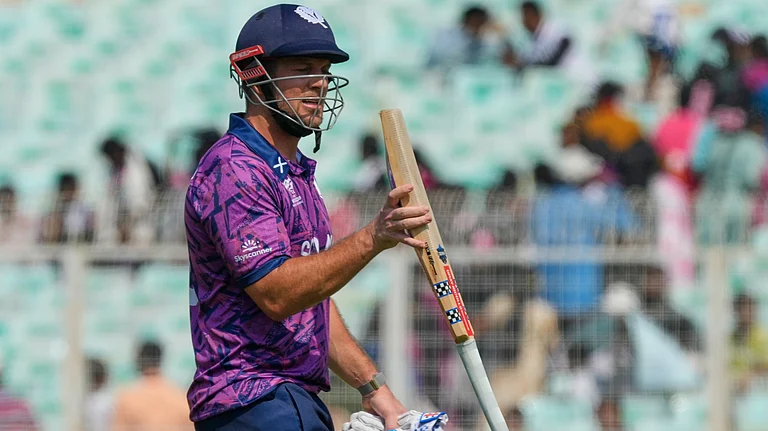THE title of the book comes from the fact that a percentage of Asians in Britain are highly visible as owners of corner shops, and invisible as far as playing professionalsoccer is concerned. Question: Why can’t Indians play soccer? Answer: Because every timethey get a corner they put a shop on it.
The book’s subtitled The Soccer Experience , but with over 4,000 full time Asianprofessional soccer players in the UK, the authors could find only one Asian playingprofessionally: Jas Jutla, who plays for the almost anonymous Greenock Morton Soccer Club.
So if Asians are not playing professional soccer, what’s this book about? Well....It’s about the racism that’s stopped them but it’s also about any linksbetween soccer and the British Asian community that the authors can find. So we have atedious account of a study (yawn) entitled, "Asians can’t play soccer"; anaccount of an inept amateur Punjabi soccer team from Coventry combining their holiday inIndia with games against local college teams; and we even get an interview with an Asianpoliceman who does duty at a soccer ground!
Sadly, the authors relate everything to racism, ignoring the low priority given tosport by Asians in the UK, or that in their country of ancestral origin, soccer has thestigma of being "a game for servants and peons". They also ignore the role ofAsian parents who’ve kept their children away from white society in case they were‘corrupted’. Racism is rampant in soccer and the UK in general, but it’s not the whole story. Racism has not stopped Asian children from excelling in the Britisheducation system! Perhaps Asians don’t play soccer because they’re too busygetting educated! But as Asians move into professional employment, many of their childrenare beginning to excel in Soccer Development programmes run by top-class professionalclubs. They will be the stars of the future, but their stories are ignored! For theauthors it’s as if the ’90s have never happened!.


























